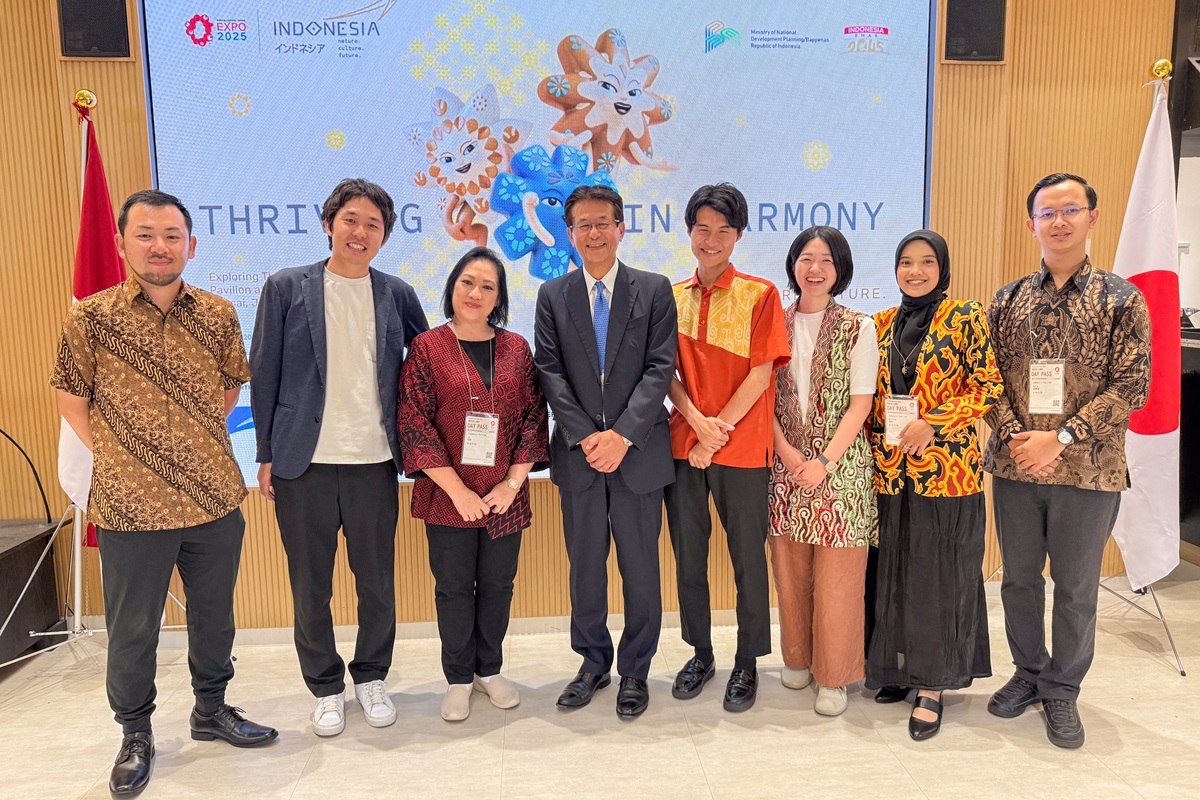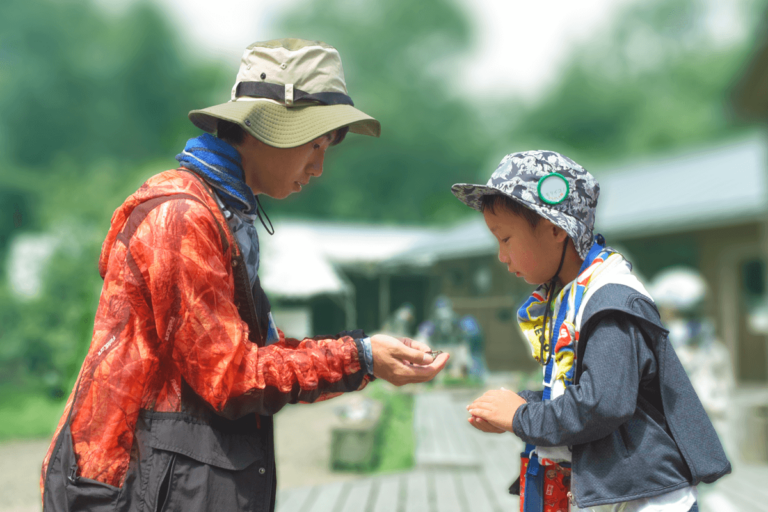Discussing the future of the environment
Greetings from the guests of honor
- Rie Sako, Executive Director, Keidanren Nature Conservation Council
- Jo Kumala Dewi, Director, Environmental Generation Development Center*, Ministry of Environment, Republic of Indonesia
*Title as of September 2025
Keynote speech
- Shogoro Fujiki, CEO, Biome
Panel discussion
- Aulia Rahman, S.E., Ministry of Forestry, Republic of Indonesia
- Alfitra Firizkia Luthfiana Dewi, Master’s Student, Environmental Science, University of Indonesia
- Nanami Takei, Director, POW JAPAN / Board Member, Kiko Network
- Akihiro Kishi, Board Member, Save Fujimae Association / City of Nagoya
- Tatsuhiro Kato, Secretary General, Japan Environmental Education Forum (Moderator)
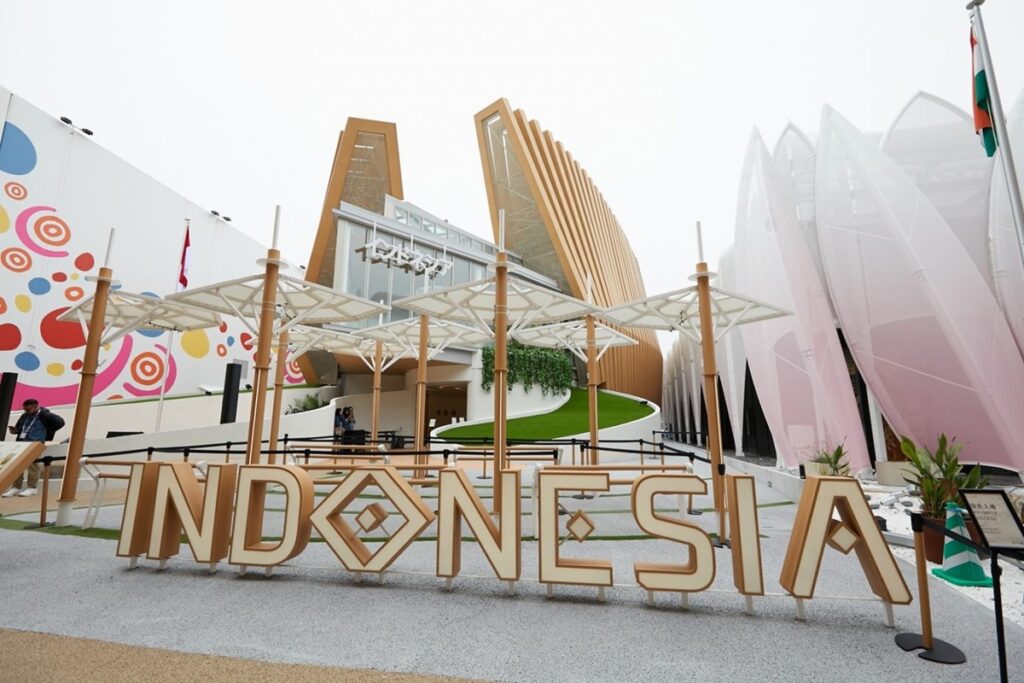
Photo credit: Indonesia Pavilion
Nurturing environmental leaders for the future
Executive Director of the Keidanren Nature Conservation Council, Rie Sako, gave an overview of the latest trends in Japan’s corporate sector regarding biodiversity and environmental conservation.
For over 30 years, the Council has led Japan’s private-sector conservation efforts, providing grants for more than 1,800 projects both in Japan and overseas through its fund. Emphasis has been given to activities in Asia, including orangutan protection and mangrove restoration in Indonesia.
Sako pointed out new biodiversity frameworks and “nature-positive” transition strategies that are taking shape globally, accelerating the trend of companies integrating environmental risk into management strategy and viewing conservation as a new business opportunity. She highlighted that to advance biodiversity conservation effectively it is essential to nurture people who can plan, act, communicate, and take initiative in the field. Developing professionals and fostering cross-sectoral collaboration are key. The success of NGO Learning Internship Program graduates now active at the Indonesian Ministry of Environment exemplifies the tangible results of such efforts. She expressed hope that this event would deepen Japan-Indonesia collaboration and further expand the circle of environmental human resource development.
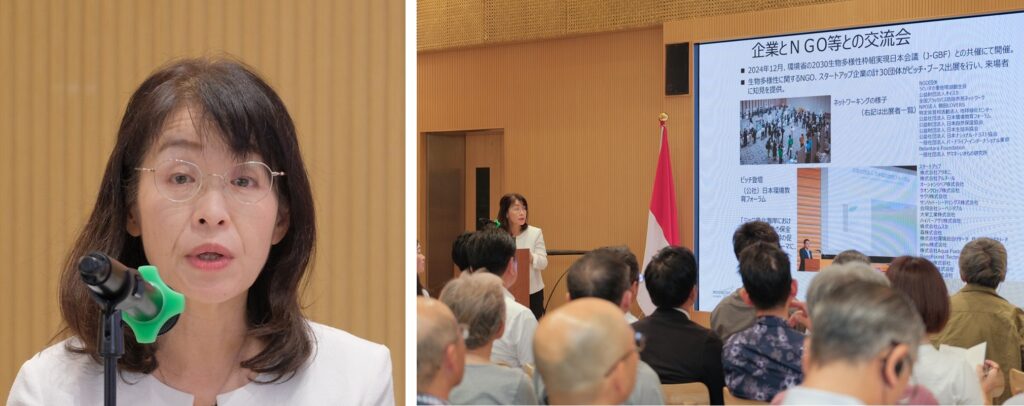
Building a “no-logging” society through data and business
Biome CEO Shogoro Fujiki shared how his formative years as a researcher in Indonesia’s tropical forests revealed the close connection between deforestation and human livelihoods. This experience drove him to found Biome and successfully turn it into a profitable enterprise, aiming to create “a society where people can make a living without cutting down trees.”
Recognizing climate change and biodiversity loss as the two major environmental crises of our time, Fujiki explained that his company views biodiversity conservation as a business opportunity. With global disclosure frameworks such as the TNFD (Taskforce on Nature-related Financial Disclosures) gaining momentum, he emphasized that companies incorporating local context into conservation initiatives are opening up new possibilities.
His company’s smartphone app, simply named Biome, has collected and visualized over 10 million biodiversity observations, combining these data with satellite imagery to efficiently support corporate and municipal conservation projects. The company’s work includes reforestation in Ghana that balances carbon credit generation with biodiversity gains, and development of a biodiversity survey tool in partnership with Indonesian government agencies.
Fujiki stressed the importance of positioning biodiversity conservation not as “volunteer work” but as a business with an economic rationale, urging companies to embed it in their core strategies. He expressed confidence that, as global rules continue to evolve, now is precisely the time for Japan and the rest of Asia to take the world forward. He voiced his hopes for the Sompo Group and other partners to pioneer that future together.
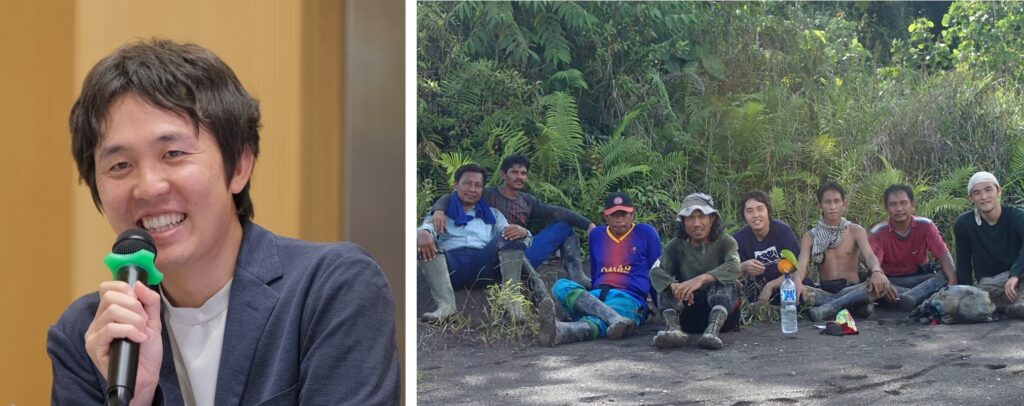
Insights and proposals for the future
Moderated by Tatsuhiro Kato, Secretary General of the Japan Environmental Education Forum and also a graduate of the CSO Learning Program, the panel discussion featured four alumni engaged in a lively exchange about the need to nurture environmental professionals, the role of young people, and specific ways to provide ongoing support.
Experiences from the Program
Takei: At the introduction of my 2020 internship at Kiko Network, I worked with an international NGO addressing snow loss and climate change called POW JAPAN. After gaining my graduate degree, I worked as an analyst at a UK-based climate risk-focused think tank and now serve as both Director of POW JAPAN and Board Member of the Climate Network. I’m also involved in climate action policy advocacy and helped produce the Climate Action Handbook of Japan’s pro football association, J.League.
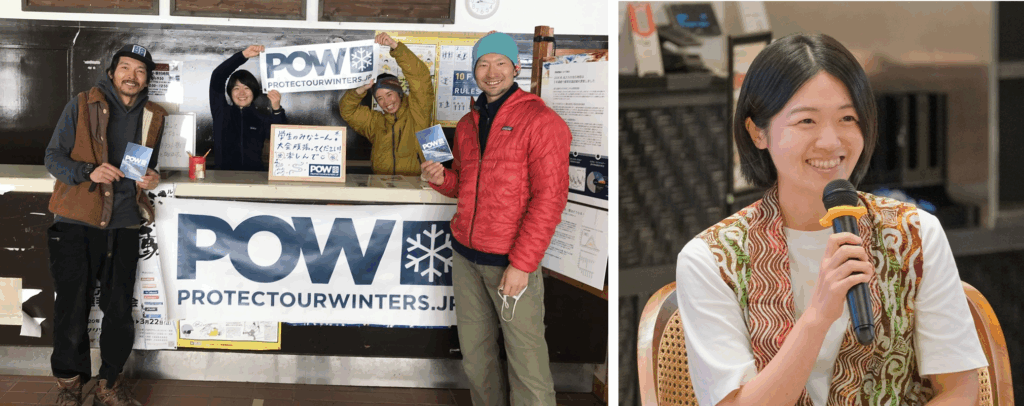
Alfitra: In 2023, I interned with the HuMa Indonesia Association, contributing to legal reform initiatives to defend indigenous rights. I chaired meetings, helped produce publications, and assisted with preparing legal documents for pollution-related court cases.
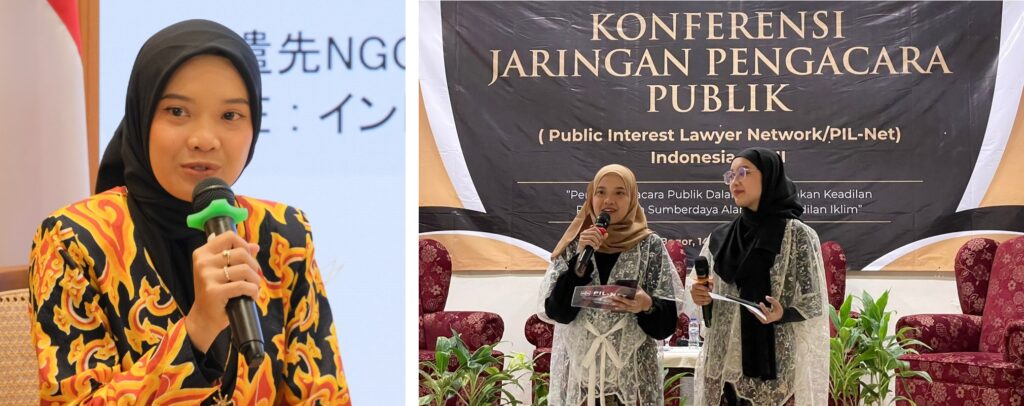
Varying perspectives on environmental awareness
Kishi: In Japan, public interest in environmental issues feels sharply divided between the “aware” and the “indifferent.” While companies are increasingly attentive to frameworks such as the TCFD and biodiversity, a large portion of society remains disengaged. Bridging this awareness gap is one of our biggest challenges.
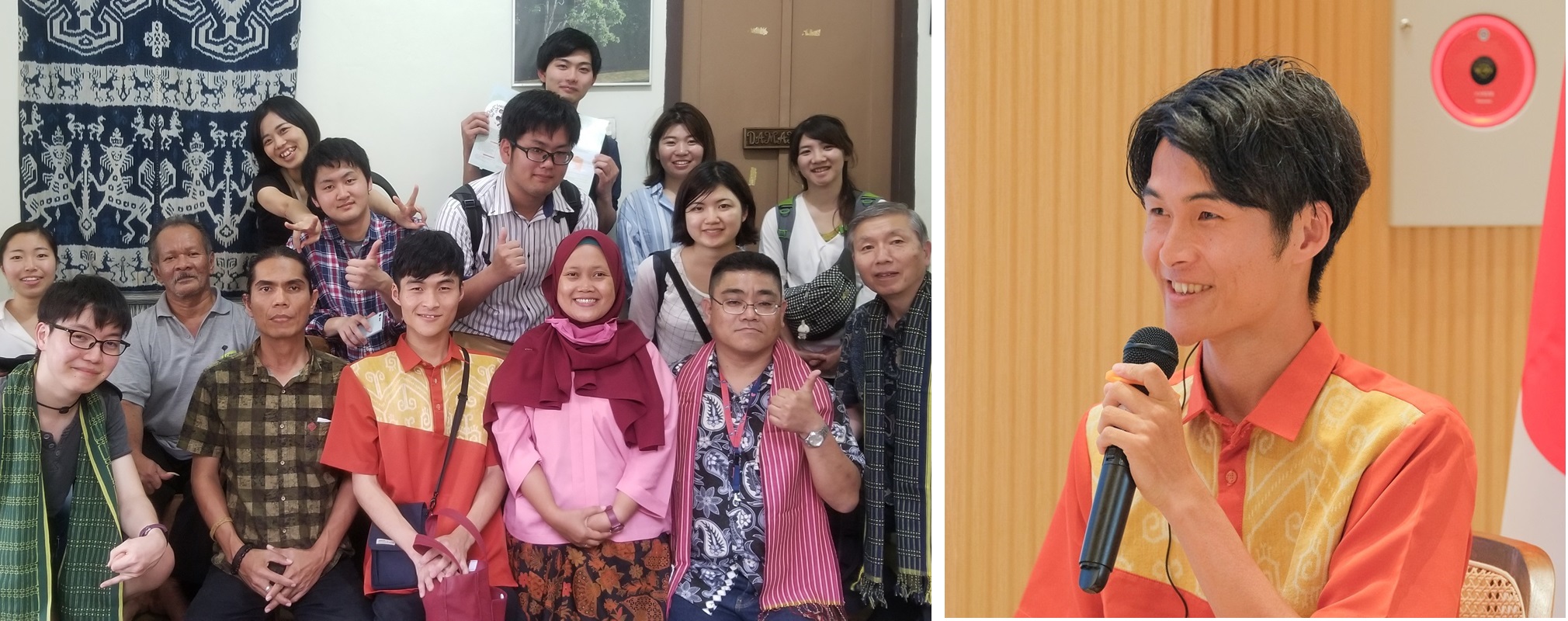
Aulia: In Indonesia, the key challenge is waste management. We can learn from Japan’s exemplary systems, but solutions must be tailored to local conditions. Cooperation between the two governments is also advancing, such as in carbon trading through the Joint Crediting Mechanism (JCM).
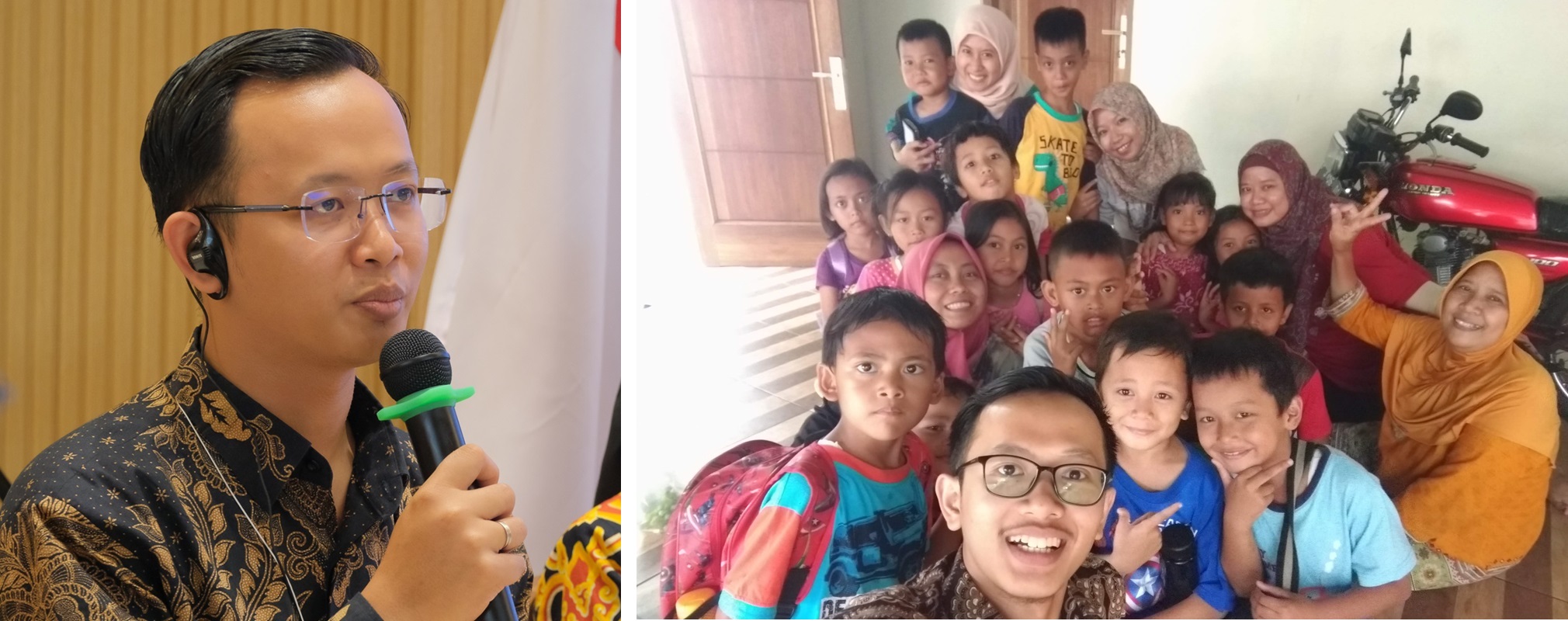
Youth engagement and their role
Takei: Youth awareness spans a wide spectrum. Many still don’t know exactly what they want to do or how they can contribute. Programs like CSO Learning serve as an important first gateway, providing exposure to diverse initiatives and inspiring that crucial first step forward.
Alfitra: The younger generation excels at using social media, and engaging with content shared online can become effective environmental education. In Indonesia, for example, the trend of carrying reusable bottles spread widely, and while this is a positive change it has also led to some over-consumption and waste. Approaches must be creative, but there’s no doubt this generation holds the key to the future of environmental conservation.
Hints and recommendations to arriving at solutions
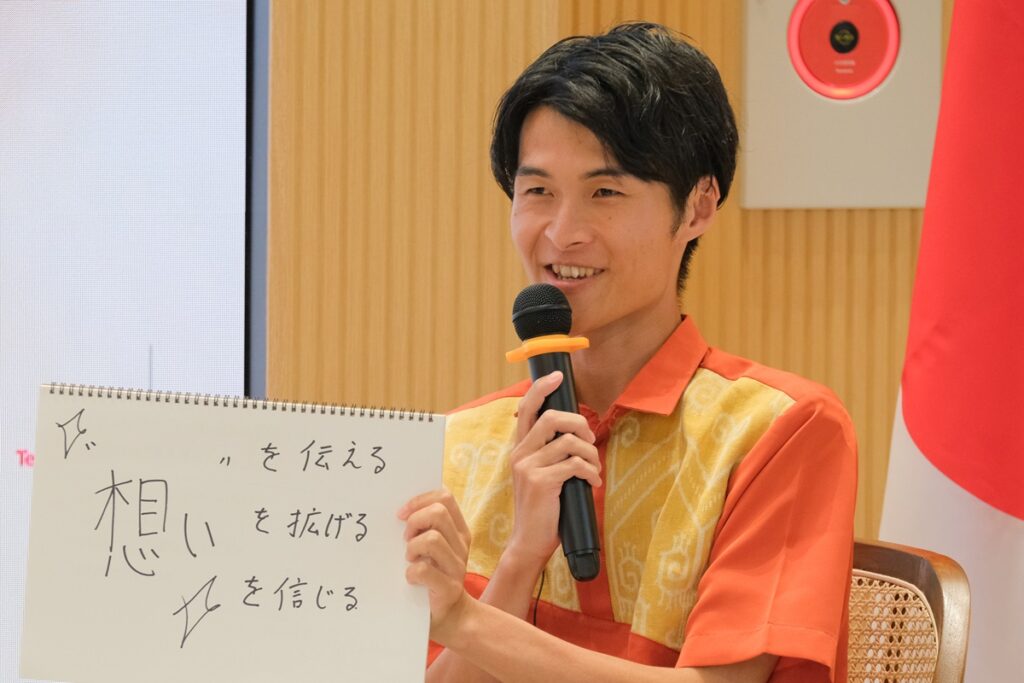
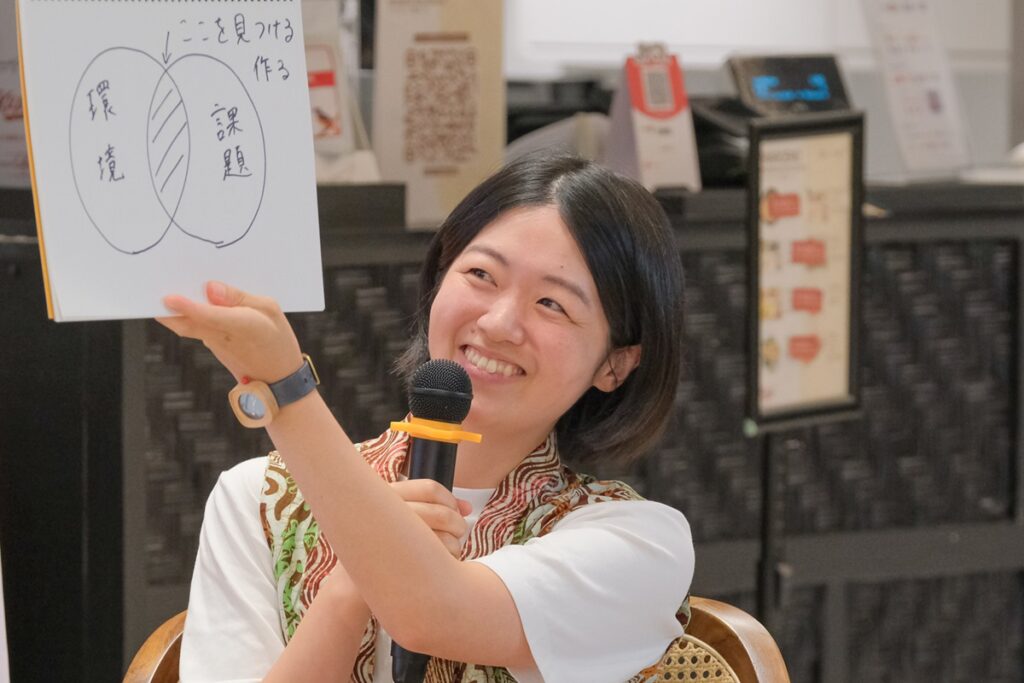
Kishi: My guiding words are “Share your passion, spread it, and believe in it.” During my internship, I was deeply moved by people’s dedication to protecting Fujimae Tidal Flat. Like Mr. Fujiki, whose sense of distress over what was happening to Indonesia’s rainforests sparked his determination to act, I also want to keep believing in the power of shared conviction – to express it, spread it, and carry it forward.
Takei: Incorporating environmental perspectives into areas such as recruitment can also be powerful. Environmentally conscious students may prioritize sustainability when choosing employers, helping companies attract talent. By linking environmental issues with broader social concerns, from hiring to sales and marketing, businesses can create meaningful opportunities for engagement and growth.
A sustainable society led by the next generation
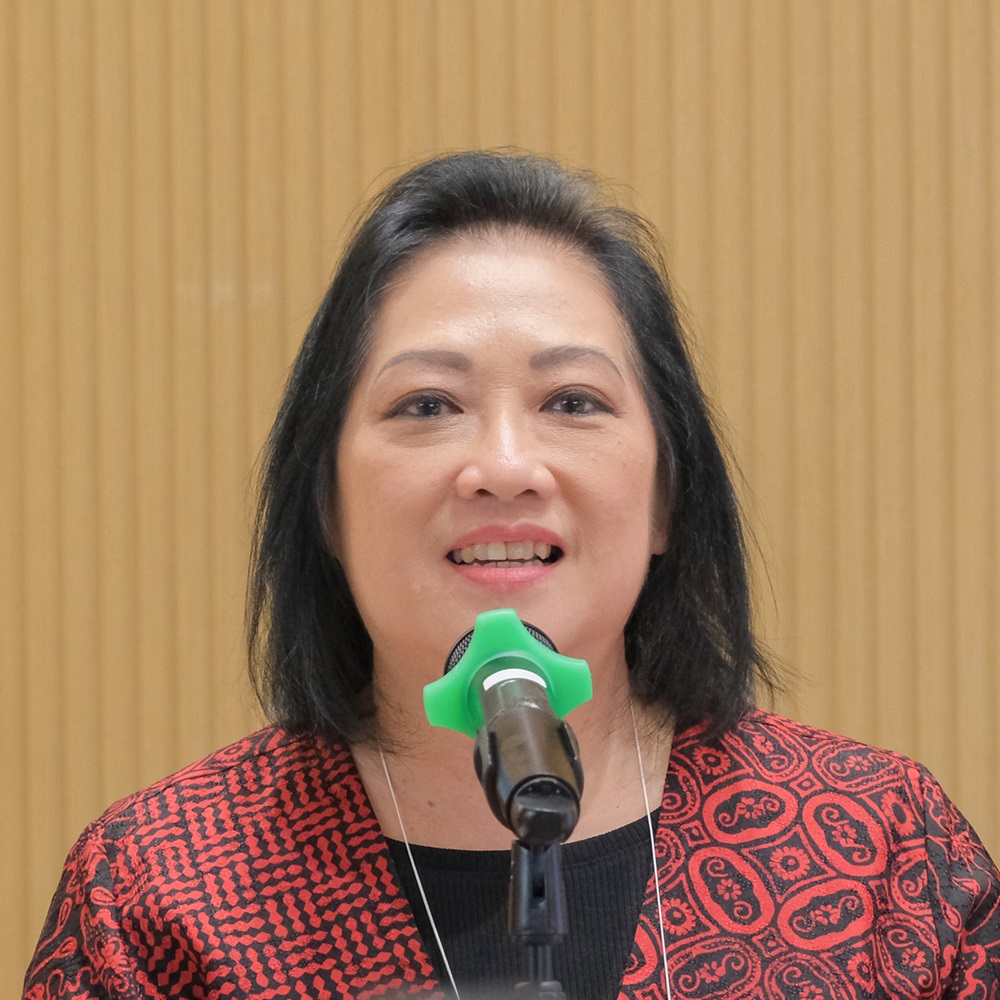
Jo Kumala Dewi, Director of the Environmental Generation Development Center at Indonesia’s Ministry of Environment, shared an inspiring message to our young environmental leaders.
She expressed her hope that this event was able to deepen mutual understanding between Japan and Indonesia in environmental conservation, further strengthening our cooperation and empowering the next generation to demonstrate leadership with an international outlook toward a sustainable future for all.
